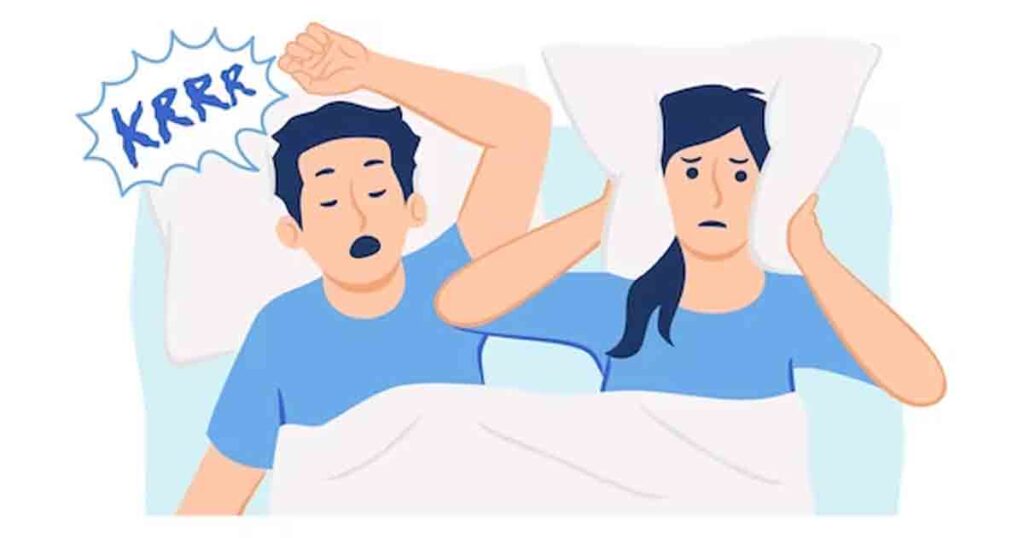What You Need to Know About Snoring ?

A number of the readers must be dealing with the problem of snoring while sleeping. There must be people who are troubled by the snoring of their partners or other family members. But is every snore a health problem?
If yes, what are the problems associated with snoring? What is the solution? Let’s find out.
Pune based pulmonologist Dr Sumeet Nawani will answer all your questions regarding Snoring.
Q.1 What is snoring? How does it happen?
A.1. Snoring is a loud whistling or gurgling sound produced by vibration of the nose, windpipe and other adjoining parts of the body. It occurs while sleeping because of narrowing of the usual passage of air from lungs to outside and vice versa. Obesity is a common cause of this narrowing, other causes can be consumption of alcohol or sedative medicines.
Q2. Is snoring always abnormal?
A.2. No. Occasional snoring may not have any significant health related effects. Also if the snoring is not too loud, and is not resulting in choking episodes or awakening from sleep, then it may not have significant effects in the short term. However, if it becomes persistent over a period of time and the patient develops other symptoms or complications, then it is definitely a matter of concern.
Q.3. What other symptoms are related to snoring that the patients may experience?
A.3. Snoring is itself a common symptom of a disease called Sleep Apnea. Patients of sleep apnea can experience choking episodes while sleeping. Such episodes are usually preceded by a continuous snore with progressively increasing loudness followed by a sudden stoppage of breathing which leads to awakening of the patient. These episodes may be associated with increased heart rate, sweating, anxiety and increased blood pressure. Apart from this patients may experience dryness of mouth, morning headaches, forgetfulness, poor concentration, increased sleepiness during the day, frequent urination at night and feeling of unrefreshing sleep. Some patients may experience newly detected or poor control of previously detected diabetes, high blood pressure or heart disease.
Q4. How is Sleep Apnoea diagnosed?
A.4. A test called “Sleep Study” is done for diagnosis of sleep apnea. During this test the patient is connected to an electronic device via various sensors, which record heart rate, oxygen saturation level and various other parameters while the patient sleeps. This information is entered into a computer and the data is analyzed to make the diagnosis. Sleep study can be performed in a hospital or even at patients’ homes.
Q5. What is the treatment for Sleep Apnea?
A.5. A device called CPAP (continuous positive airway pressure) is prescribed for treatment of sleep apnea. It is basically a compact ventilator attached to a mask via a tube. The patient has to put the mask on while sleeping and the machine delivers air at a pressure which aids the patient’s breathing during the sleep. It may be uncomfortable for the patients to use the device to start with, but gradually patients get significant relief in their quality of sleep and get used to the mask and the device.
Q6. Whom to approach for diagnosis and treatment of sleep apnea?
A.6. Patients should see a pulmonologist or a sleep medicine specialist for this. Some ENT specialists also treat snoring and sleep apnea related issues.
Q7. What are the other treatments available for snoring?
A.7. Mandibular advancement devices are basically custom made splints which need to be placed in the mouth while sleeping. Also some patients may require surgery to correct snoring.
Author information: Dr Sumeet Nawani is a consultant pulmonologist at The Lung Care Centre, Kalyani Nagar, Pune.









